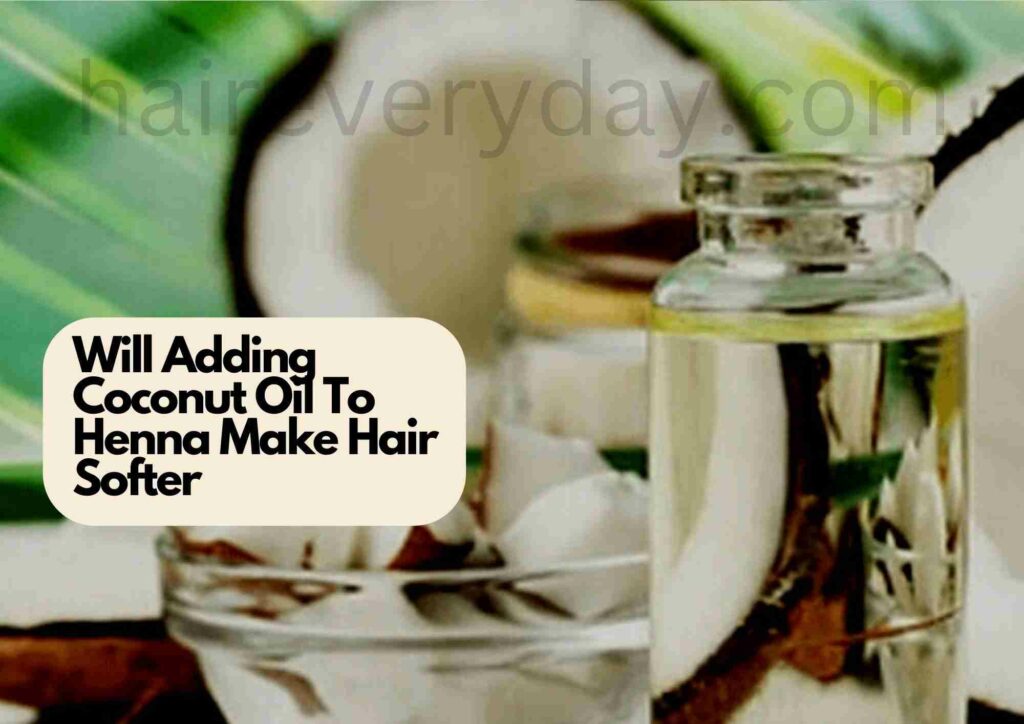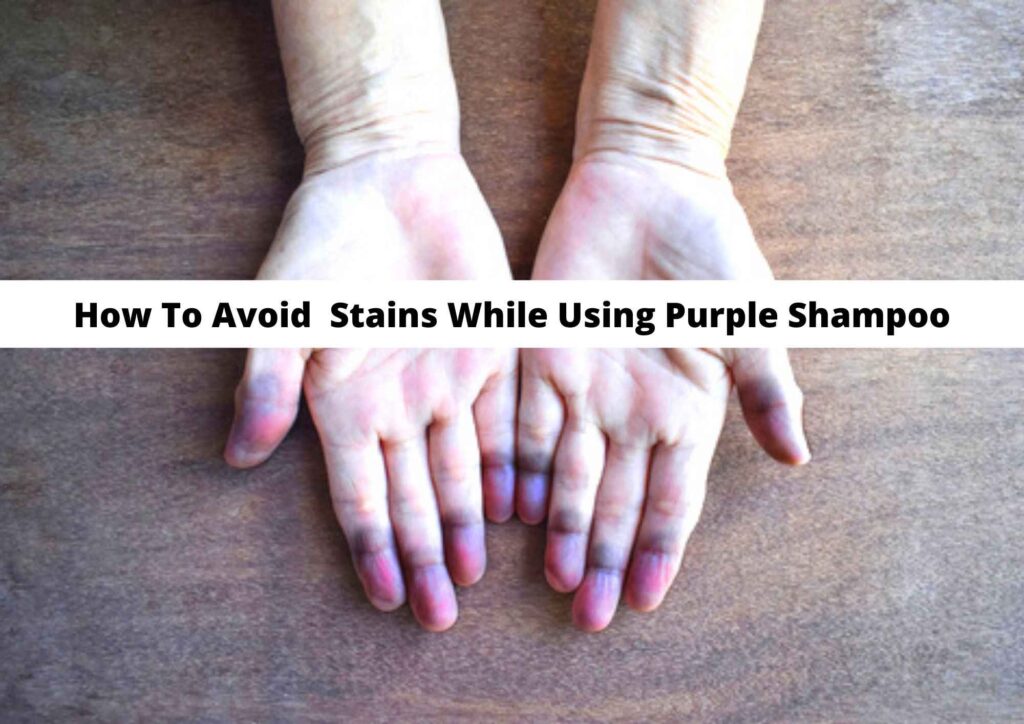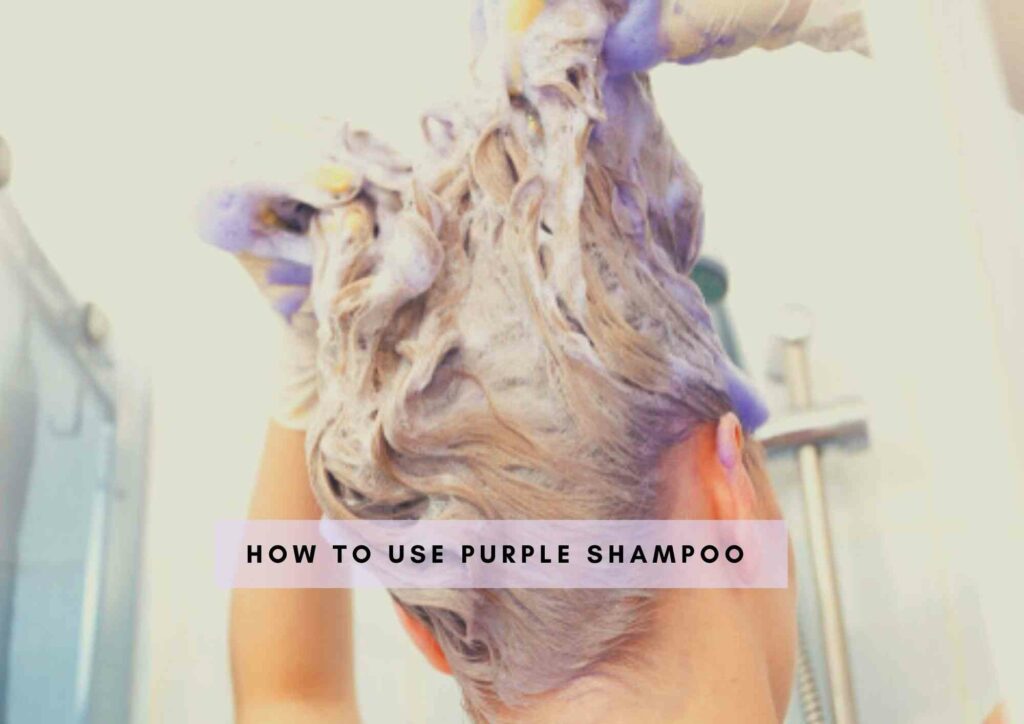Will Adding Coconut Oil To Henna Make Hair Softer or will this make the henna for hair make the color not get absorbed by hair. Well, let’s find out in my article below.
The benefits of coconut oil on hair are hard to ignore, from smoothing out split ends to providing a simply divine scent. Those who dye their hair using henna have long searched for a way to further incorporate this powerful natural oil into their routine.
Could adding coconut oil to henna amplify the effects on our tresses? We investigate the claims that the now-popular method of mixing coconut oil with henna could make hair softer than ever before.
It’s no wonder so many people are turning to natural hair care solutions like henna, coconut oil, and a combination of both. With these old-world herbs and oils, we gain access to remedies previously used in regions of Asia, South Pacific, and Africa.
So why not enhance henna further by adding coconut oil to the mix? I venture to find out if a burst of coconut oil could lead to softer hair than ever.
Will Adding Coconut Oil To Henna Make Hair Softer

Adding coconut oil to henna is a popular choice for those looking for softer, smoother hair.
When applied to the scalp and hair as a natural conditioning agent, henna and coconut oil together produce a conditioning mixture that can help bolster the condition of the hair shaft and follicles, leading to a dramatic improvement in the overall quality of your locks.
Coconut oil is known for its nourishing properties, as it is high in fatty acids, minerals, and vitamins that can help strengthen weak and damaged hair. By combining it with henna, the benefits of both ingredients soak into the scalp and hair.
The fatty acids in coconut oil penetrates the hair shaft, while the henna functions as a protective barrier, preventing excessive moisture loss and adding shine and volume.
Together, the combination of henna and coconut oil both helps to keep the hair nourished, as well as to add natural depth and volume to the strands.
Henna penetrates the hair shaft, adding a healthy shine and providing protection from damage, while the coconut oil locks in the moisture, leaving the hair hydrated and soft for days afterwards.
Henna has also been known to reduce itching and irritation, as well as reduce breakage due to its protective properties.
When added to coconut oil, the two become an even more formidable team to provide your locks with much needed nourishment. The result is soft and manageable hair that looks healthy and voluminous.
Adding coconut oil to henna is a great way to make your hair softer, smoother and shinier. The combination helps to repair damage, infuse vital nutrients, and protect against future damage.
If you’re looking for a natural way to add shine and softness to your locks, look no further than this potent pairing.
Related: How To Mix Henna With Lemon Juice For Unbleached Hair
Related: Can I Mix Yogurt In Henna For Conditioning Hair
Will Mixing Henna And Coconut Oil Help Cover Grey Hair
The tantalizing prospect of using a combination of Henna and Coconut Oil to cover grey hair has long been a topic of discussion and debate among beauty enthusiasts.
Traditionally, Henna has been renowned as a natural dye derived from the Henna plant and is widely utilized in hair color treatments.
Therefore, it’s no surprise that the possibility of combining Henna with Coconut Oil in an effort to stubbornly hold onto hair’s natural color has captivated those seeking a natural solution to gray hair growth.
At its crux, Coconut Oil is widely known for its nourishing and softening properties, making it an ideal candidate for treating dry, brittle and damaged hair.
Due to its high concentration of beneficial fatty acids and vitamins, when used in combination with henna, it is believed to help strengthen the hair follicles and impart a shine to the hair’s outer layer.
Some have even used this mixture to improve the grey coverage they previously received from using solely Henna while reiterating its natural benefits.
Ultimately, the efficacy of this mix is largely dependent upon the health and strength of the individual’s hair. For some, the added Coconut Oil may help to enhance the longevity of their grey hair coverage.
However, for others it is likely that the results could be entirely unnoticeable. Ultimately, the best way to determine whether or not this hair care combination has any observable benefits is to try it out and see first-hand.
Can I Replace Water Base In Henna For Hair With An Oil
Using oil as a substitute for the water base used in mixing henna for your hair can have a range of advantages and drawbacks. Depending on the type of oil you use, you may find it delivers benefits for your hair but can also bring potential risks.
Coconut oil is one of the most popular choices for henna users, as it is known for its nourishing properties when it comes to looking after your hair. It can add crucial hydration back into your hair, resulting in greater softness and a seamless level of moisture.
This can be especially beneficial if your hair is prone to drying out and feels brittle. Coconut oil can help to protect strands against the everyday damage of combing, styling and brushing.
On the other hand, however, it’s worth remembering that adding an oil base to henna can make it more difficult to get the paste to adhere to your hair in the first place as the oil will reduce its ‘grab’ factor.
You may struggle to create the texture and depth of colour that you are looking for. Additionally, since coconut oil is a relatively heavy oil, it may make your hair look greasy and heavy, which can make styling challenging.
For those who are looking for more moisture but don’t want the extra weight, lighter oil bases such as almond oil, jojoba oil or even olive oil are all potential alternatives for henna that could be more suited to your needs.
Ultimately, you will find what works best for you and your hair.
Benefits Of Mixing Coconut Oil In Henna
Mixing coconut oil with henna can offer a range of benefits for individuals looking to improve the texture, appearance, and health of their hair.
Adding a high-quality coconut oil to henna can help to make the hair softer, smoother, and more manageable, thus reducing the time it takes to style the hair.
The properties of coconut oil can help to nourish the hair as it is rich in fatty acids, vitamin E, and antioxidants. These components help to hydrate the hair follicles and strands, which can provide additional shine and vigor to the hair.
Also, due to its low molecular weight, the oil can penetrate deeply into the hair shaft, providing extra moisture and conditioning.
For individuals experiencing dryness or brittle hair, coconut oil can help to restore strength and elasticity, making the hair more resistant to damage.
Coconut oil can also help to provide protection when using henna dye. Because Henna is a natural dye, it can be slightly harsher on the hair compared to other hair colors.
By incorporating coconut oil into henna, it can offer a protective shield, preventing the dye from overly drying out the hair.
Incorporating coconut oil into henna can be a great way to boost nourishment while also providing a beautiful color to the hair.
Due to its moisturizing properties, the oil can help to ensure the hair stays healthy and soft, thus reducing the need for additional chemical treatments.
Which Oil To Apply After Henna On Hair
When it comes to caring for your henna-treated hair, many people wonder which oil to apply after henna. There are a variety of different oils you can use on your hair, such as avocado oil, jojoba oil, and grapeseed oil.
Each of these oils is beneficial for different kinds of hair, and can help to make your hair look softer and more luxurious.
One of the most popular oils for henna-treated hair is coconut oil. Coconut oil can help to seal in the moisture from the henna, keeping your hair hydrated and healthy.
Additionally, coconut oil adds shine to your hair, without making it greasy or weighed down. Coconut oil is filled with nutrients and vitamins that help to nourish the hair, such as vitamin E and fatty acids, which can help to soften and smooth your hair.
Jojoba oil is another popular choice for treating henna-treated hair. This oil can help to lock in hydration and prevent your hair from drying out, while also protecting against environmental damage.
Additionally, jojoba oil is packed with nutrients, such as vitamin E, omega-6 and 9 fatty acids, zinc, and chromium, which can help to keep your hair looking soft and healthy.
Finally, another great oil for henna-treated hair is avocado oil. Avocado oil is filled with amino acids and antioxidants that help to nourish and protect your hair.
It helps to keep the scalp and hair well moisturized, while also providing protection from environmental stressors. Additionally, avocado oil is rich in vitamin E, which helps to keep your hair looking and feeling soft and luxurious.
Ultimately, there are many oils that you can use to treat henna-treated hair, but coconut oil, jojoba oil, and avocado oil are among the top choices.
Not only do these oils help to seal in the moisture from henna, but they are also full of nutrients that can help to make your hair look softer and more luxurious.
What Essential Oil Can I Mix With Henna For Hair
If you’re looking to improve the softness and shine of your hair using henna, then you should consider adding essential oils to the mix. Essential oils can add all sorts of nourishing benefits to the hair and make the results of henna treatments even nicer.
The best essential oil to mix with henna for hair is coconut oil. Its natural properties make it an excellent choice for making hair softer, plus it has an additional bonus of adding a lovely subtle scent.
Coconut oil is an excellent emollient that can help seal in moisture, which is essential for softening and taming frizzy hair.
Rich in vitamins and essential fatty acids, it helps nourish, condition and protect the scalp and hair from damage caused by chemical treatments, heat styling and environmental pollutants.
Unlike other oils that can be too heavy for some hair types, coconut oil helps soften, soothe and detangle the hair without leaving it greasy or weighed down.
Aside from coconut oil, there are ample essential oils to choose from depending on your hair type and needs.
For example, Argan oil is known for its hair-strengthening benefits, sweet almond oil helps to seal in moisture in dry hair, jojoba oil helps restore the natural balance of oily hair, and tea tree oil can help stimulate the scalp while fighting against bacteria.
There are several ways to mix the essential oil with your henna treatment.
You can mix a few drops of your chosen oil with your henna paste before applying it to your hair, or you can apply oil to your hair after your henna treatment to help nourish and add extra shine.
Alternatively, you can make your own moisturing mask using a few drops of essential oils mixed in with your henna.
Incorporating essential oils into your henna treatment can make a big difference in the result. So, next time you use henna for hair, consider adding an essential oil such as coconut oil to give your hair that extra bit of nourishment and softness.
In conclusion, adding coconut oil to henna is an effective and affordable way to make hair softer.
Not only does coconut oil nourish, hydrate, and condition the hair and scalp, but it also enhances the color and strengthens the strands with many of its unique aspects.
The combination of henna and coconut oil is a natural and safe alternative to obtaining the beautiful and silky hair that you desire.
So, if you are looking for an extra boost of moisture and hydration, experimenting with the combination of henna and coconut oil is the way to go!
Also Read:
Can I Henna My Hair Two Days in a Row
How To Mix Henna And Indigo Together For Black Hair
How Long Does Henna Last On Straight Hair
Should I Use Hot Water Or Cold Water For Mixing Henna
How To Mix Henna For Dry And Damaged Hair
To Summarize











